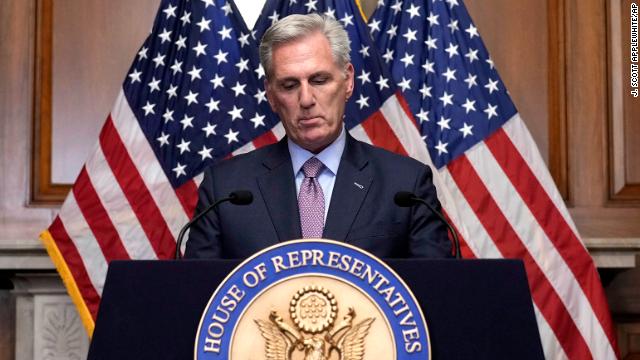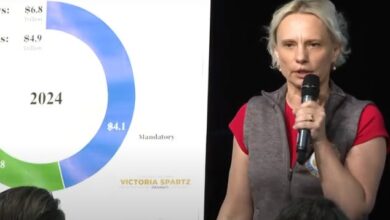Historic Vote Ousts Rep. Kevin McCarthy as House Speaker, Setting Stage for Intraparty Battle

In an unprecedented turn of events, Representative Kevin McCarthy (R-Calif.) was dethroned as House Speaker on Tuesday, succumbing to a rebellion among far-right dissidents. This historic House vote marks the first time in over 240 years that the legislative body has removed its leader, plunging Congress into a period of uncertainty and gridlock. McCarthy, in the wake of his removal, publicly announced his decision not to seek the position again, paving the way for an anticipated intraparty struggle to fill the position, which stands second in line to the presidency.
Tuesday’s dramatic vote culminated a protracted power struggle between McCarthy and hard-line Republican lawmakers, a conflict that had persisted throughout his nearly nine months as speaker. McCarthy had played a pivotal role in leading the GOP to a narrow majority in the previous year’s midterm elections.
This unprecedented step was propelled by an increasingly radicalized faction within the Republican party, emboldened since the rise of the tea party movement. This group had previously led efforts to shut down the government and bring the nation to the brink of a default on its debt. Now, House Republicans face the daunting task of selecting a new leader and reaching a consensus on funding the government by mid-November, or they risk another government shutdown.
McCarthy’s removal sends shockwaves through the already fractious House GOP conference, characterized by long-standing tensions among ideological factions that are now expected to reach a boiling point. The House is not scheduled to reconvene until Tuesday, at which point candidate forums will commence for those vying for the speakership.
Amidst this upheaval, speculation has swirled about potential successors, with Rep. Jim Jordan (R-Ohio), who co-leads investigations into President Biden, his family, and the administration, not ruling out a bid for the speakership. Additionally, Majority Leader Steve Scalise (R-La.) has been approached by Republicans and encouraged to run, despite his recent battle with cancer.
The division within the Republican conference had been evident since the beginning of the year, when McCarthy’s election as speaker required 15 rounds of voting. The specter of potential ousting by the far-right faction had loomed over every decision he made.
Throughout the year, as McCarthy grappled with the narrow majority, many of his House Republican allies had warned that he might face a motion to vacate the speakership. This procedural tool, used to remove him, had been demanded by far-right holdouts who sought a lower threshold for such a motion during McCarthy’s leadership election in January. With McCarthy’s exit, the challenges of bridging the divide among House Republicans grow more pressing, particularly in light of the upcoming government funding deadline, as many of McCarthy’s commitments centered around significant spending reductions.




